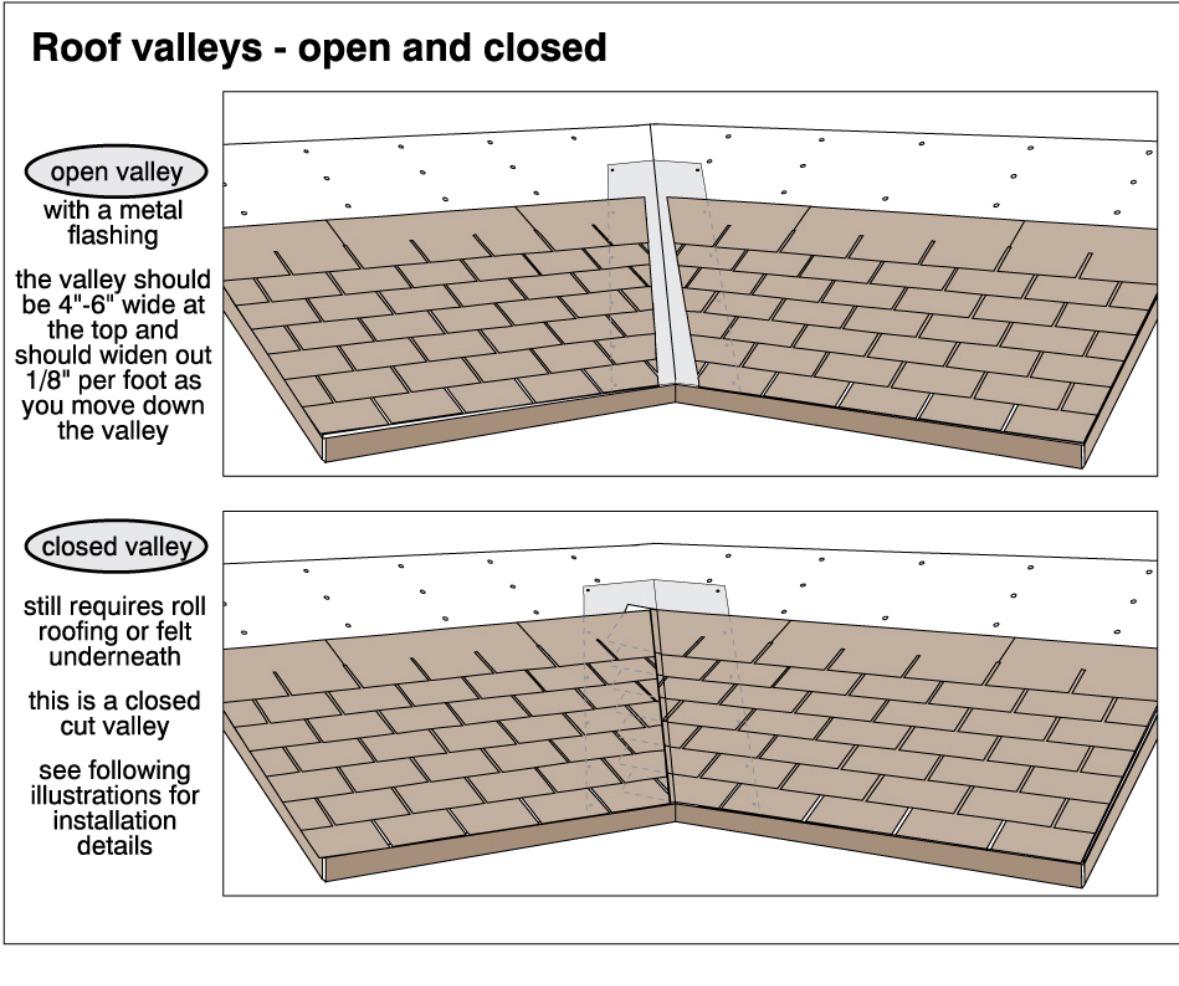
When it comes to roofing design, valleys are critical areas where two roof slopes meet. Choosing the right type of valley system-open or closed-can impact your roof's durability, cost, and even its appearance. Let's break down the differences between open and closed valleys to help you make the best decision.
What Is a Roof Valley?
A roof valley is where two slopes meet, forming a channel that directs rainwater and snow off your roof. It's a vulnerable area prone to leaks if not installed properly.
Open Roof Valleys
Open valleys expose a metal flashing (usually aluminum or steel) along the valley, and shingles are cut back to reveal it.
- Superior water runoff and drainage
- Metal adds extra protection from leaks
- Ideal for high-rain or snow regions
- More expensive due to metal flashing
- Visible metal may not match all aesthetics
Closed Roof Valleys
In closed valleys, shingles from both roof slopes overlap and cover the valley. There's no visible metal, and the valley looks seamless.
- Lower cost due to less flashing
- Cleaner appearance-shingles blend in
- Can trap debris, leading to water backup
- More prone to wear over time in high-rain areas
Cost Comparison
- Open Valley: $25-$50 more per 10 feet due to metal flashing
- Closed Valley: More budget-friendly and quicker to install
Which One Is Better?
Choose open valleys if you live in an area with heavy rain, snow, or if you want maximum durability.
Choose closed valleys if budget or aesthetics are your main priorities and you live in a milder climate.
Maintenance Tips for Both Types
- Clear debris regularly to prevent water backup
- Inspect for rust (open) or shingle wear (closed)
- Have valleys checked during annual roof inspections
Conclusion
Both open and closed valleys serve their purpose. Open valleys offer superior protection and drainage, while closed valleys blend seamlessly into your roof. The right choice depends on your local climate, budget, and roofing goals.
Need help deciding? Search by ZIP code to compare local roofing contractors and get expert guidance today.
Find Local Roofers